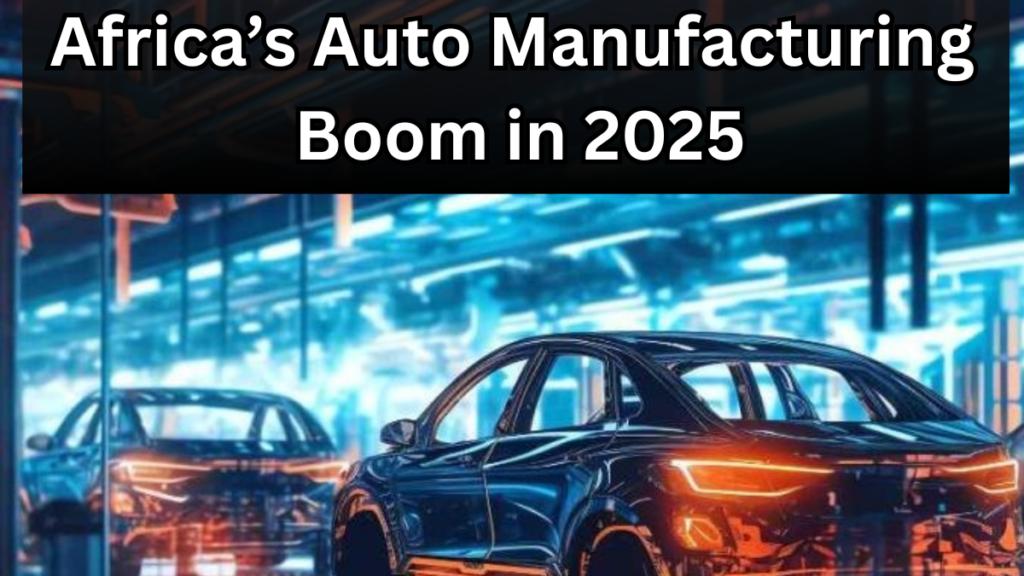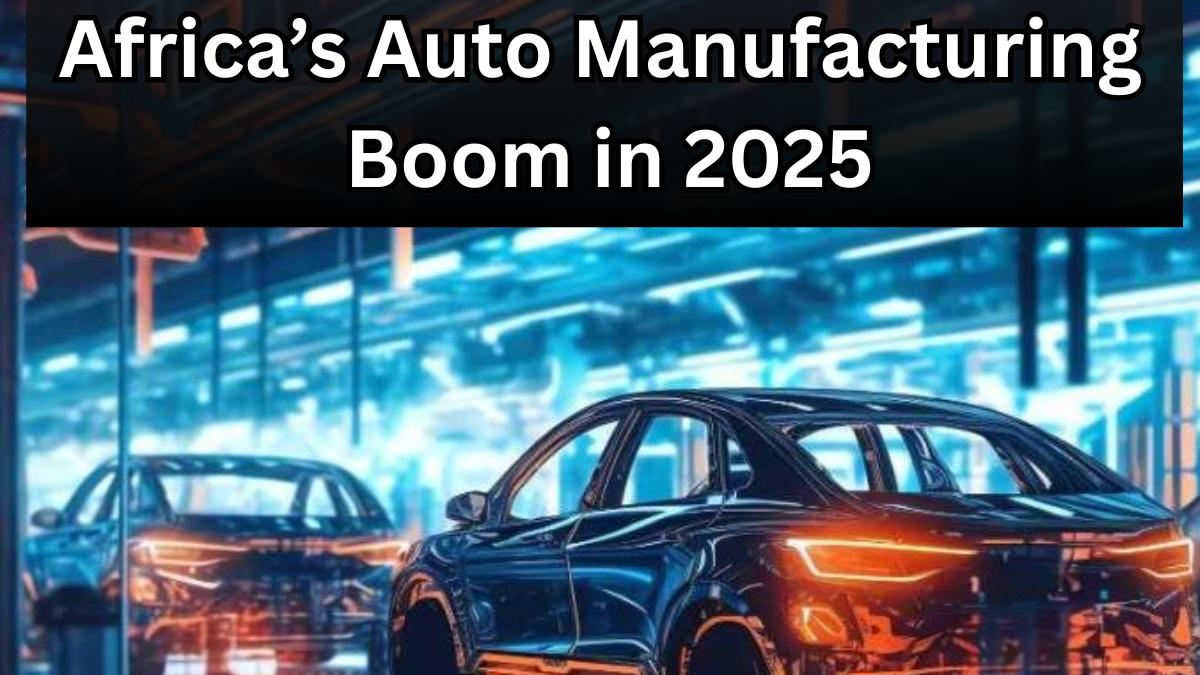Africa is revving up its engines for a transformative leap in the auto industry. As we step into Africa Auto Manufacturing 2025, the continent is experiencing a surge in electric vehicle (EV) initiatives, expansion of car assembly plants, and policy-backed industrial growth.
Let’s dive into the key developments driving this automotive revolution.

Why 2025 is a Turning Point for Africa’s Auto Industry
2025 is being marked as a breakthrough year for the continent’s automotive ambitions. Here’s why:
-
Policy Push – Governments across Africa are actively investing in local manufacturing.
-
EV Surge – A growing focus on electric vehicles is shaping the future of urban mobility.
-
Job Creation – Manufacturing expansion is driving employment and skill development.
-
Increased Exports – Locally assembled vehicles are beginning to serve both domestic and regional markets.
Key Players and Projects Driving Growth
A number of African nations are stepping up with major projects that reflect the boom in Africa Auto Manufacturing 2025.
Country-wise Highlights of Car Assembly Growth
| Country | Major Development | Focus |
|---|---|---|
| South Africa | Toyota, Ford, VW expanding EV production lines | EV assembly, exports |
| Morocco | Stellantis and Renault scaling production | Parts & full car assembly |
| Ghana | VW and Nissan car assembly plants now operational | Local assembly, market penetration |
| Kenya | Mobius Motors & Peugeot expanding assembly facilities | Affordable cars for Africans |
| Nigeria | Innoson Motors increasing output | Indigenous production |
These efforts are strengthening car assembly plants in Africa, boosting self-sufficiency and reducing reliance on imports.
Rise of EVs: Africa’s Green Auto Future
Electric vehicles aren’t just a trend—they’re becoming an integral part of Africa Auto Manufacturing 2025. Key developments include:
-
Charging Infrastructure – Kenya, Rwanda, and South Africa are building charging station networks.
-
Local Battery Production – Zimbabwe and DRC are exploring lithium processing for battery manufacturing.
-
Government Incentives – Many countries are offering tax breaks and import duty exemptions for EV assembly.
Challenges on the Road Ahead
While progress is undeniable, there are some speed bumps:
-
Infrastructure Gaps – Many regions still lack reliable electricity and road networks.
-
Skilled Labor Shortage – Technical training is needed to meet growing demand.
-
Import-Dependency for Parts – Localization of parts production is still limited.
Despite these issues, the outlook remains optimistic, with car makers and governments doubling down on solutions.
What’s Fueling the Growth?
Several factors are accelerating Africa Auto Manufacturing 2025:
-
Urbanization and population growth boosting vehicle demand
-
AfCFTA (African Continental Free Trade Area) easing trade among member states
-
Technology transfers from foreign auto manufacturers
-
Green transport goals encouraging EV integration in transport policies
FAQs
1. Which countries are leading Africa’s auto manufacturing in 2025?
South Africa, Morocco, and Ghana are currently at the forefront, thanks to established manufacturing ecosystems and government support.
2. Are electric vehicles being produced locally in Africa?
Yes, several countries like South Africa and Kenya have begun assembling electric vehicles locally, supported by global partnerships and local innovations.
3. How many car assembly plants exist in Africa now?
There are over 30 operational car assembly plants in Africa as of 2025, with more under construction or expansion.
4. What is Africa Auto Manufacturing 2025 all about?
It refers to the growing momentum in the continent’s auto sector, especially around EV production, local assembly, and job creation, signaling Africa’s readiness to become a global player.
Final Thoughts
Africa is no longer just a market for foreign automakers—it’s becoming a manufacturing hub in its own right. From EVs to fully localized assembly lines, the continent is driving toward a bold, self-sustaining automotive future.
Africa Auto Manufacturing 2025 is more than a trend—it’s a movement shaping the next chapter of industrial development in Africa.
Click here to learn more
Sachin is a dedicated writer specializing in education, career, and recruitment topics, delivering clear and actionable insights to empower readers.
